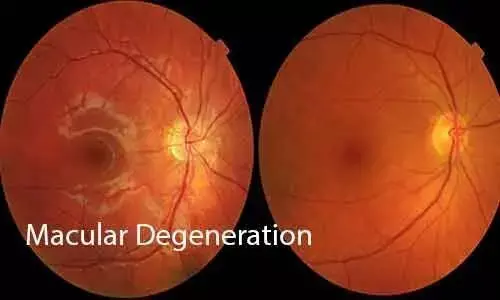- Home
- Medical news & Guidelines
- Anesthesiology
- Cardiology and CTVS
- Critical Care
- Dentistry
- Dermatology
- Diabetes and Endocrinology
- ENT
- Gastroenterology
- Medicine
- Nephrology
- Neurology
- Obstretics-Gynaecology
- Oncology
- Ophthalmology
- Orthopaedics
- Pediatrics-Neonatology
- Psychiatry
- Pulmonology
- Radiology
- Surgery
- Urology
- Laboratory Medicine
- Diet
- Nursing
- Paramedical
- Physiotherapy
- Health news
- Fact Check
- Bone Health Fact Check
- Brain Health Fact Check
- Cancer Related Fact Check
- Child Care Fact Check
- Dental and oral health fact check
- Diabetes and metabolic health fact check
- Diet and Nutrition Fact Check
- Eye and ENT Care Fact Check
- Fitness fact check
- Gut health fact check
- Heart health fact check
- Kidney health fact check
- Medical education fact check
- Men's health fact check
- Respiratory fact check
- Skin and hair care fact check
- Vaccine and Immunization fact check
- Women's health fact check
- AYUSH
- State News
- Andaman and Nicobar Islands
- Andhra Pradesh
- Arunachal Pradesh
- Assam
- Bihar
- Chandigarh
- Chattisgarh
- Dadra and Nagar Haveli
- Daman and Diu
- Delhi
- Goa
- Gujarat
- Haryana
- Himachal Pradesh
- Jammu & Kashmir
- Jharkhand
- Karnataka
- Kerala
- Ladakh
- Lakshadweep
- Madhya Pradesh
- Maharashtra
- Manipur
- Meghalaya
- Mizoram
- Nagaland
- Odisha
- Puducherry
- Punjab
- Rajasthan
- Sikkim
- Tamil Nadu
- Telangana
- Tripura
- Uttar Pradesh
- Uttrakhand
- West Bengal
- Medical Education
- Industry
Ranibizumab switch from aflibercept in nAMD patients linked to deterioration in visual acuity: Study

USA: Switching from aflibercept to ranibizumab resulted in a reduction in visual acuity and worse anatomic results in patients with neovascular age-related macular degeneration (nAMD), states a study published in Graefe's Archive for Clinical and Experimental Ophthalmology.
The most common cause of significant vision loss in people over 50 is age-related macular degeneration (AMD). Since ranibizumab was approved in 2006, VEGF inhibitors have significantly changed the course of treatment and accepted the standard of care for AMD. For the treatment of AMD, ranibizumab, bevacizumab, and aflibercept are now the most used anti-VEGF drugs. Despite the fact that these drugs have significantly and favourably changed how AMD is treated, there are still numerous financial and therapeutic restrictions with the existing treatment plans.
The authors aimed to compare the results of eyes with stable neovascular age-related macular degeneration who moved from aflibercept to ranibizumab to eyes who stayed on aflibercept for the same amount of time.
For this study, a total of 142 eyes were examined, with 71 placed in the switch group and 71 in the aflibercept group. As a result of concerns about intraocular inflammation (IOI) with aflibercept, eyes that switched from aflibercept to ranibizumab were found in this retrospective cohort analysis. Pre-switch, switch, and post-switch visits were used to collect data (P1, P2, P3). Similar information was acquired on eyes that were switch-eligible but remained on aflibercept, with the third visit being the "presumed switch." Outcome assessments included visual acuity (VA) and central foveal thickness (CFT).
Key highlights of the study:
- The mean CFT increased in the switch group, going from 165.7 m at Sw to 184.7 m at P1 (p = 0.009), 180.9 m at P2 (p = 0.007), and 183.3 m at P3 (p = 0.004).
- VA changed from logMAR 0.43 (20/54) at Sw to 0.49 (20/61) at P1 (p = 0.02), 0.54 (20/69) at P2 (p = 0.008), and 0.53 (20/68) at P3 (p = 0.04), all with significant p-values.
- Over the same time span, there was no discernible change in CFT in the aflibercept group.
- At the "presumed switch," VA changed from logMAR of 0.56 (20/72) to 0.58 (20/76) at P1 (p = 0.085), 0.62 (20/83) at P2 (p = 0.001), and 0.59 (20/77) at P3 (p = 0.14).
The researchers concluded that, when switched from aflibercept to ranibizumab, nAMD eyes that were stable or improving deteriorated, whereas those in a similar group that stayed on aflibercept were largely stable, suggesting a potential efficacy difference between the two medications.
REFERENCE
Salabati, M., Obeid, A., Mahmoudzadeh, R. et al. Outcomes after switching eyes that were stable on aflibercept to ranibizumab versus continuing aflibercept in neovascular age-related macular degeneration. Graefes Arch Clin Exp Ophthalmol 260, 2509–2516 (2022). https://doi.org/10.1007/s00417-022-05601-0
Dr Kamal Kant Kohli-MBBS, DTCD- a chest specialist with more than 30 years of practice and a flair for writing clinical articles, Dr Kamal Kant Kohli joined Medical Dialogues as a Chief Editor of Medical News. Besides writing articles, as an editor, he proofreads and verifies all the medical content published on Medical Dialogues including those coming from journals, studies,medical conferences,guidelines etc. Email: drkohli@medicaldialogues.in. Contact no. 011-43720751


